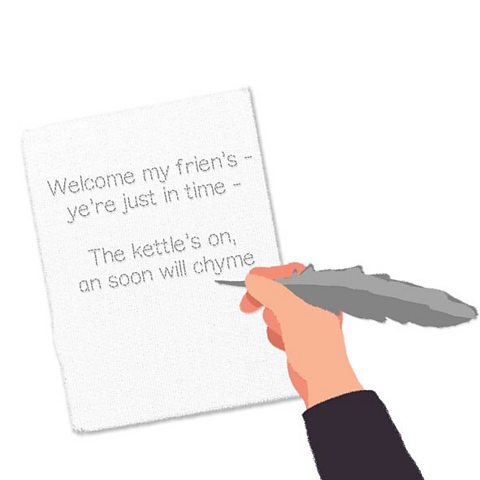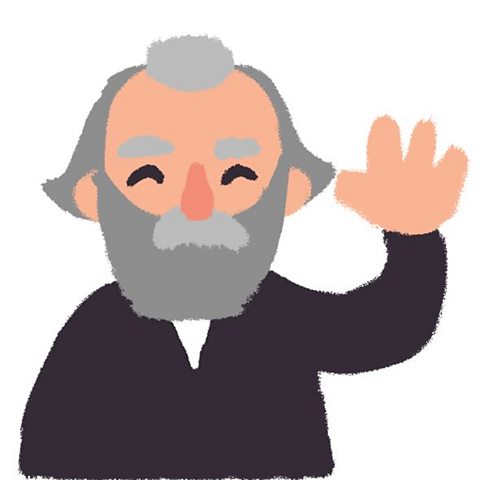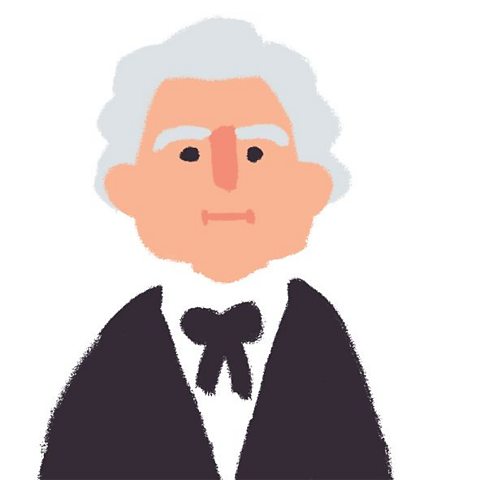
The Weaver Poets were a group of people who worked in the linen industry in Ulster in the 18th and 19th Centuries and wrote poems mainly in Ulster-Scots. Ulster-Scots is a version of the Scots language that the weaver poets’ ancestors brought with them from Scotland during the Plantation of Ulster.
Sometimes called the Rhyming Weavers many of their poems were written in Standard Habbie. This was a way of writing verse that sounded, when read aloud, like the rhythm their looms made. Influenced by Scottish poets such as Robert Burns, the Rhyming Weavers wrote about their day to day lives but also about important events that were happening in the world at that time.

Watch the video below to find out more about the Weaver Poets.

James Orr
James Orr, the Bard of Ballycarry, is considered by many to be the best of Ulster’s Weaver Poets. Born in 1770 into an Ulster-Scots family in County Antrim, James didn’t go to school but was educated at home by his father. When he was old enough James became a handloom weaver. However, although he earned a living by weaving James was most passionate about poetry and politics.
During his lifetime, James wrote over 150 poems - in both English and Ulster-Scots. He wrote about everyday things like potatoes and tea but also discussed more serious subjects such as cruelty to animals, education and slavery. Interested in politics and the world outside of Ballycarry, James joined the United Irishmen and fought with them in their 1798 Rebellion. Fighting for equality for Catholics and Presbyterians who were discriminated against in Ireland at this time - James fled to America after the rebellion was crushed. His poem The Passengers tells the story of this experience. Eager to get home, James returned from exile to his fireside at Ballycarry, where he lived out the rest of his life – weaving and writing.


David Herbison
A bard is a poet or storyteller and David Herbison, born in County Antrim in 1800 was given the name the Bard of Dunclug. Like James Orr, David was also a weaver whose real passion was poetry, that he wrote in his native Ulster Scots.
Although born after the 1798 Rebellion David supported the people who fought in this uprising. His poem The Exile’s Lament is about someone who had to flee Ireland because of their part in the revolt. In his poetry he also recorded major events that happened during his lifetime. His poem The Irish Widow’s Lament tells the story of a woman who called to his door with her five children in 1846 during the Irish Potato Famine. David also wrote about day to day life and the world around him in Ulster. Like Robert Burns, the influential Scottish poet, David Herbison also wrote a poem with a mouse as its subject.
One of the last Weaver Poets David also wrote about the big changes in the linen industry that he witnessed first-hand. Hand loom weaving was being replaced by machines that could do the job faster and more efficiently.
David published many volumes of poems but changes in language and writing during his lifetime, meant that increasingly he wrote in English instead of in the Ulster-Scots that he grew up with.

More on Linen
Find out more by working through a topic
- count2 of 5

- count3 of 5

- count5 of 5
